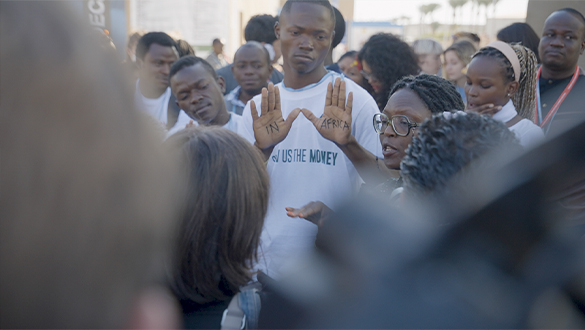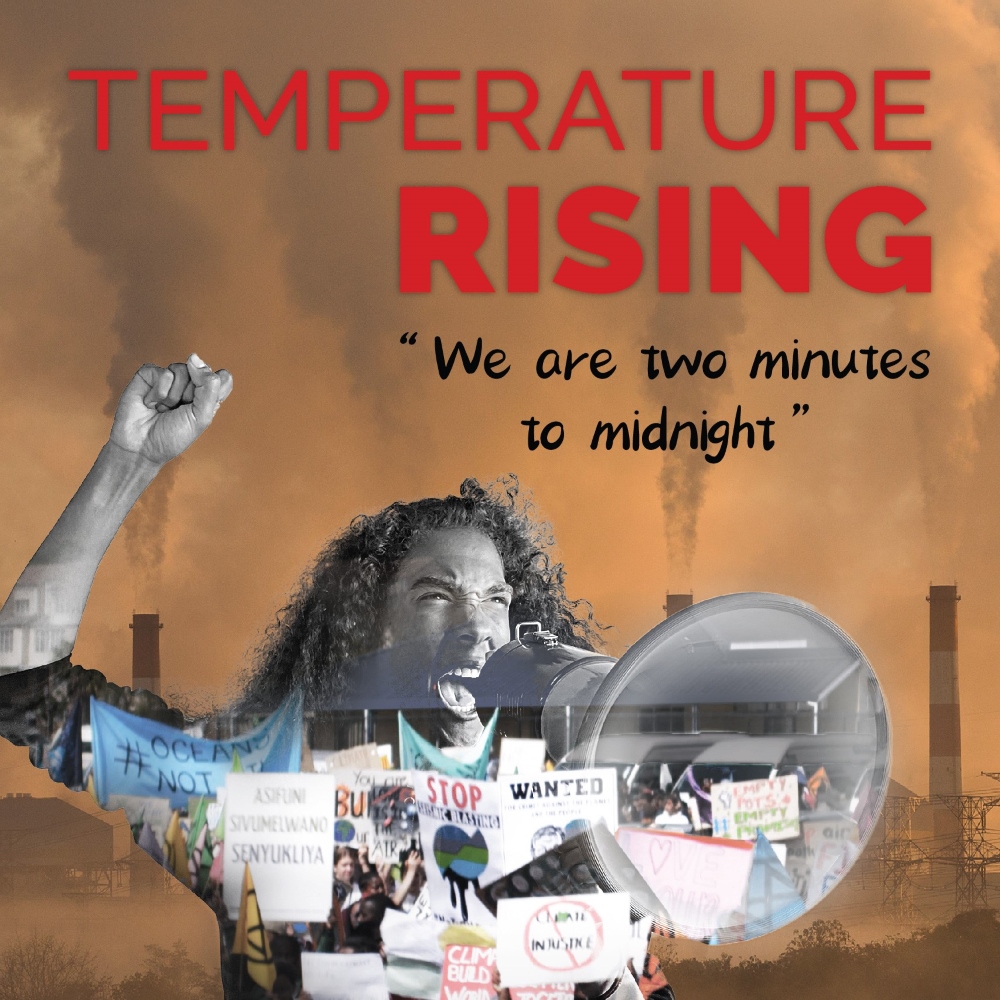African activities fight against climate change at Temperature Rising

“Africa produces less greenhouse gases than any other continent, but faces some of the worst impacts of the climate crisis”. With this brief phrase, the documentary Temperature Rising summarizes its idea as it tackles how climate change is affecting different parts of Africa.
Directed by the three directors Jacqueline van Meygaarden, Anita Khanna and Rehad Desai, the documentary follows the struggle of three African activists: Ina Maria Shikongo, Kumi Naidoo, and Gabriel Klaasen.
In Namibia, Shikongo, a frontline defender and activist fights for the Okavango region – a UNESCO world heritage site because of its biodiversity. People in Okavango struggle because there is a Canadian oil company that is operating there and has a very bad impact on their life.
Shikongo says “The company has been lying for decades about its impact on global warming, for us in Namibia this means that we lose our water source”.
Through her fight against the oil company’s project, Shikongo received many threats and was advised not to visit the drill site again.
In one of the scenes she was standing in a desolate land and accusing the oil company of transforming it to a wasteland.
“Who gave them the right to this land which belongs to the community,” she said.
In South Africa, Gabriel Klaasen from the African Climate Alliance is also fighting against coal generated energy in eMalahleni city – an area which has the highest level of CO2 emissions in the world.
In this part the directors focused on the life of one of the residents of Mpumalanga province which has 12 of South Africa’s 15 coal-fired power stations. The resident is Promise Mabilo who says that her only hope is to breathe clean air because she can’t breathe properly no more because of the polluted environment she lives in.
In Durban in South Africa, activist Kumi Naidoo witnesses the devastating consequences of climate change as flooding ravages his town. Naidoo calls for an urgent mobilization to address the imminent ecological crises exacerbated by governmental inaction.
Through the journey of the three activists, the audiences go through a deep understanding of how climate change has a great negative impact on people in Africa and how the world doesn’t care despite the international conferences where many leaders participate in them.
There was no distinguished camera work in the documentary, maybe because the directors chose to be to the point because they are tackling an issue that has a severe impact on the people.
The interviews were good but I wanted to see more of the life of the people, not just little glimpses. All the characters appear sitting or standing in front of the camera saying what she wants to say, and many facts were just written on the screen, however, since it is a film, I wanted to “see” more than listening or reading.
However, the directors did a good job researching the issue, choosing the places and also choosing the main characters that were interviewed. Due to its important subject climate change that is threatening the whole world, Temperature Rising is worth watching.
Catch the film at the Encounters South African International Documentary Festival: http://encounters.co.za/
Author: Youssra el-Sharkawy
This review emanates from the Talent Press programme, an initiative of Talents Durban in collaboration with the Durban FilmMart Institute and FIPRESCI. The opinions expressed in this article are those of the author (Youssra el-Sharkawy) and cannot be considered as constituting an official position of the organisers.

